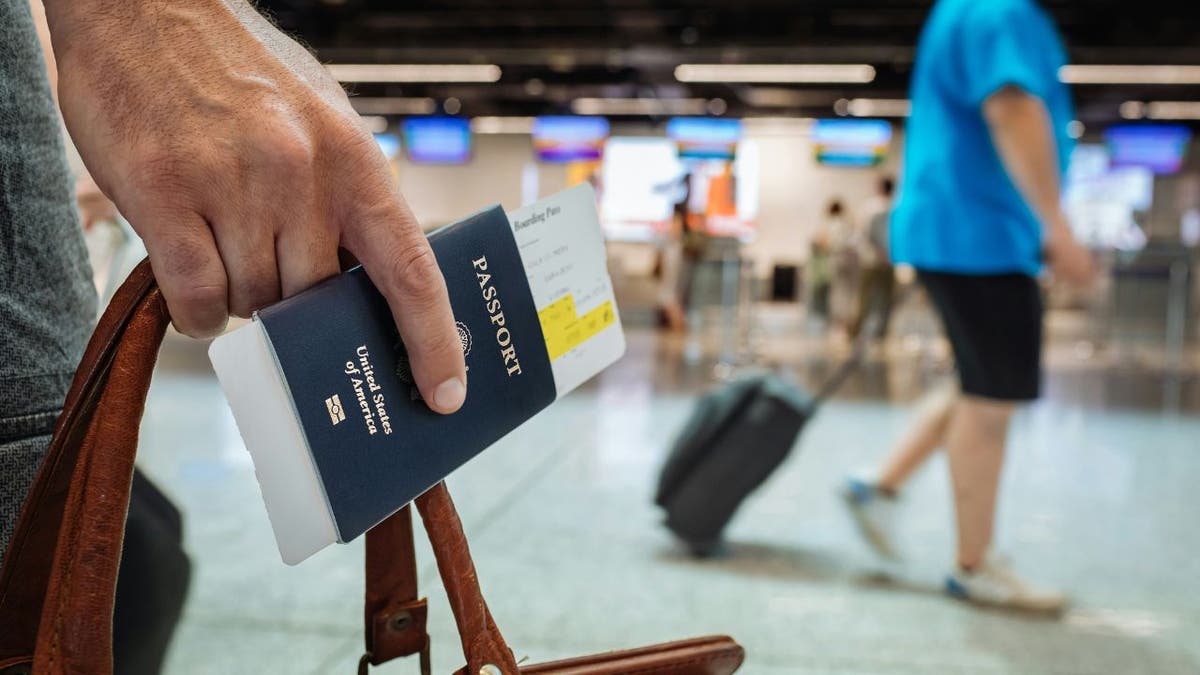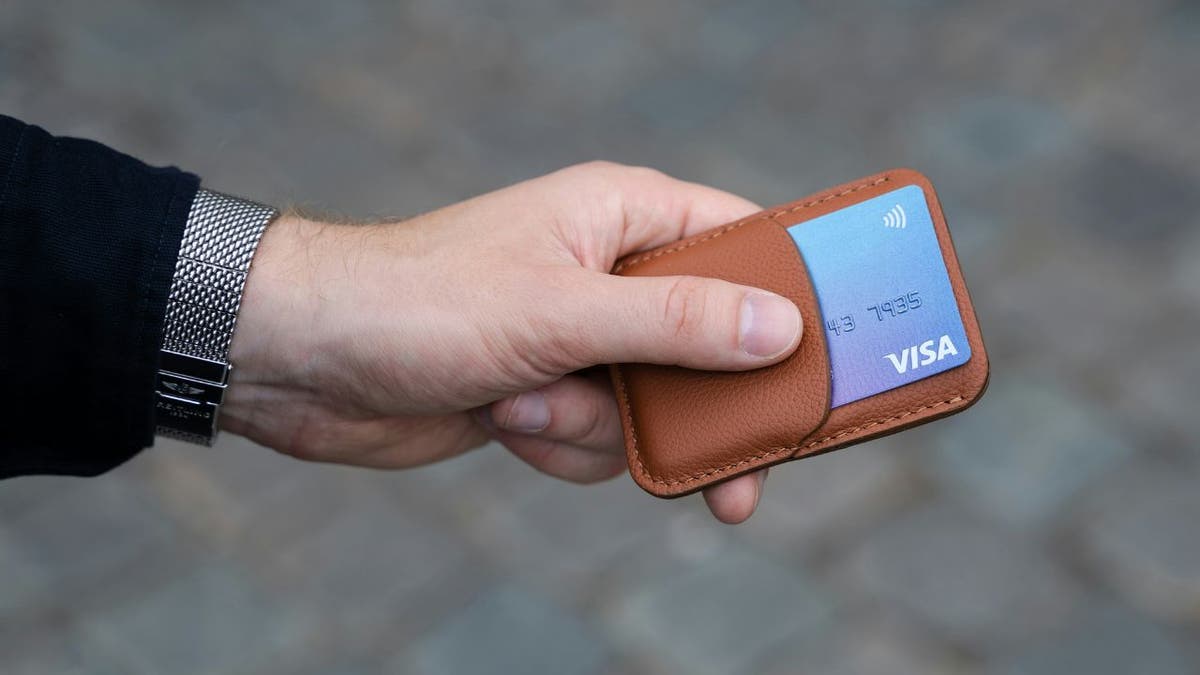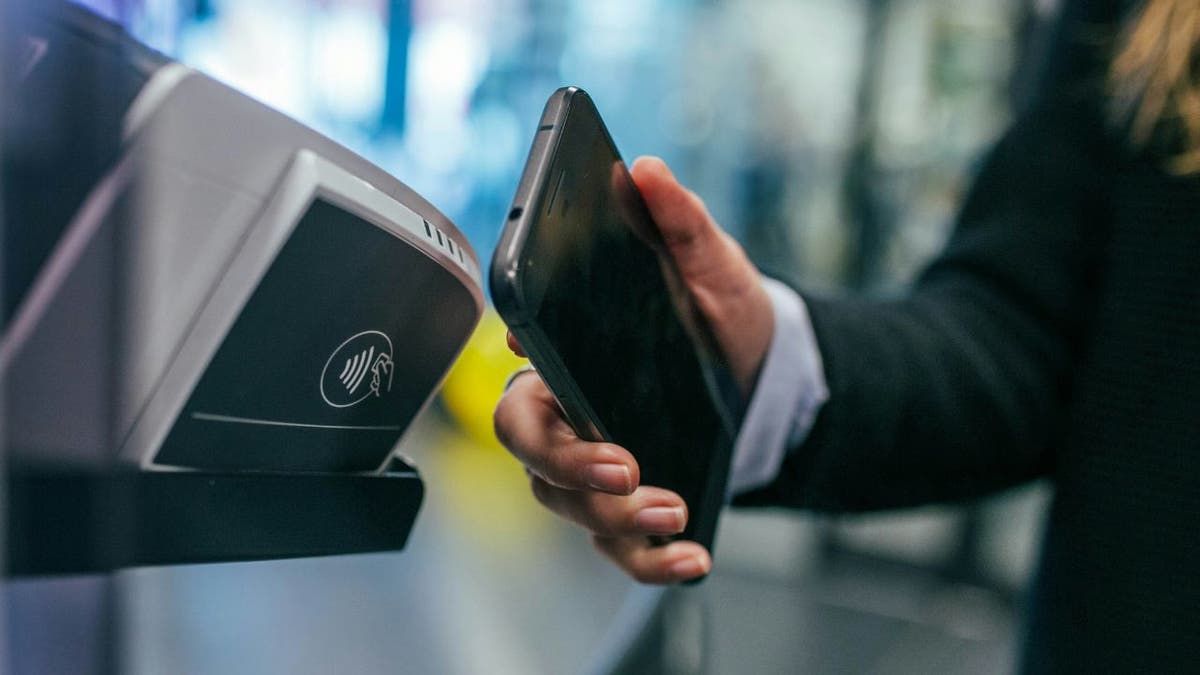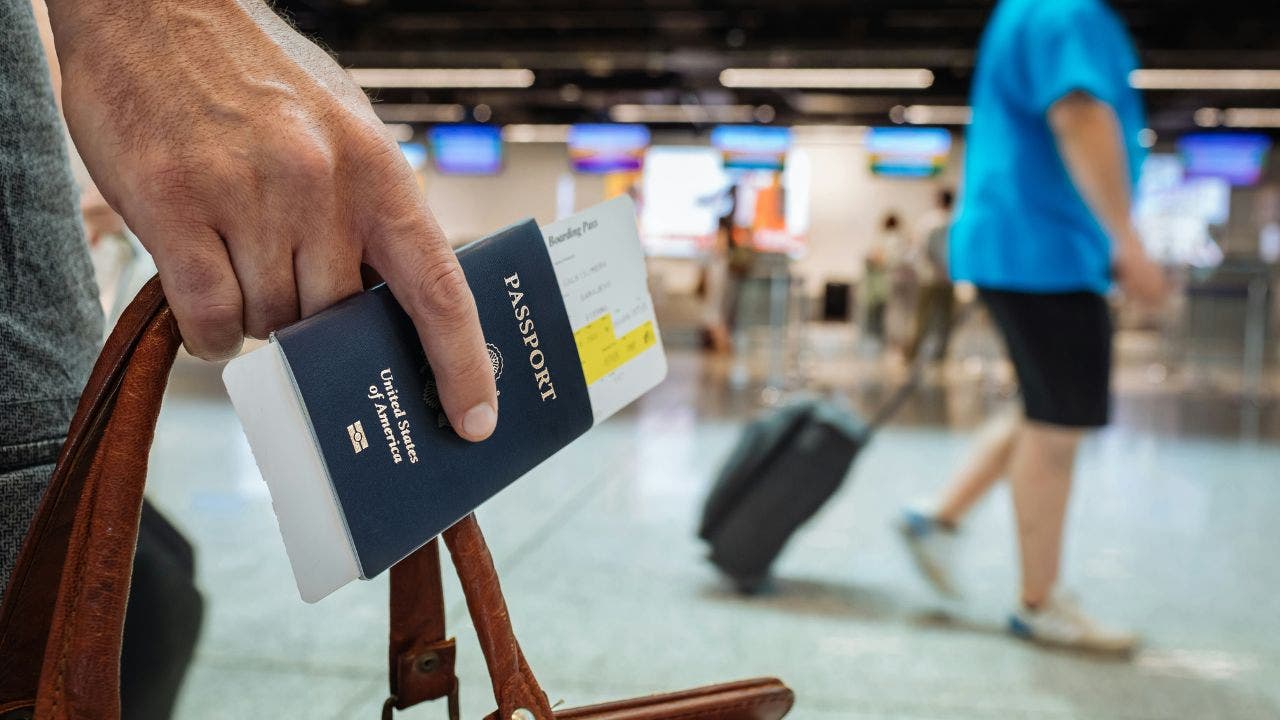Travel expert unveils hottest destinations for summer 2025, shares tips to plan perfect cruise
Travel expert Colleen Kelly shares the hottest travel destinations for this summer and provides tips for travelers planning a cruise.
As you rush through busy terminals, juggling bags and boarding passes, your credit cards may be at risk, not just from pickpockets, but from digital thieves using high-tech tools like RFID (radio-frequency identification) skimmers.
While today’s chip-enabled cards are more secure than old magnetic stripes, it’s still wise to take extra precautions, especially in crowded places like airports.
Here’s how to keep your cards protected while traveling.

A person holding a passport while traveling (Kurt “CyberGuy” Knutsson)
WHAT IS ARTIFICIAL INTELLIGENCE (AI)?
How credit card theft happens while traveling
Before diving into how to protect yourself, it helps to understand the most common ways credit cards are compromised during travel.
- RFID skimming: Some credit and debit cards are equipped with RFID chips that enable contactless payments. Thieves carrying handheld RFID readers can capture your card’s data simply by being near you. No physical contact is required, and you often won’t even notice it happening.
- Card skimming at ATMs and terminals: In some regions, criminals install fake card readers over legitimate machines at airports, gas stations or retail locations. These skimmers copy your card’s information when you insert it. In many cases, a hidden camera is also installed nearby to record your PIN as you type it.
- Pickpocketing and physical theft: Airports are full of distractions, which thieves rely on. A quick bump in a security line or a moment of inattention at the check-in counter is all it takes for someone to slip your wallet out of a bag or pocket.
- Public Wi-Fi snooping: Using unsecured airport or hotel Wi-Fi can expose your private data. Hackers connected to the same network can intercept sensitive information, including credit card numbers and login credentials, especially if you’re making purchases or accessing banking apps without protection.
- Lost or stolen cards: It’s not uncommon to misplace a card during travel. If someone finds it – or worse, steals it from your luggage or hotel room – they could make unauthorized purchases before you realize it’s missing.
HOW TO REMOVE YOUR PRIVATE DATA FROM THE INTERNET
Ways to protect your credit cards
The good news is that protecting your credit cards while traveling doesn’t have to be complicated or expensive. With a few smart habits and the right tools, you can avoid the most common threats and enjoy your trip with more peace of mind. Here are some easy ways to keep your cards safe while you’re on the move.

A man holding a credit card wallet (Kurt “CyberGuy” Knutsson)
THIS IS HOW TO PROTECT YOUR CREDIT AND BANK CARDS FROM GETTING HACKED
1. Use RFID-blocking gear
Some credit cards include RFID chips that make contactless payments easy and convenient. However, this same feature can be exploited if someone with the right equipment gets close enough to scan your card without your knowledge. Using RFID-blocking gear such as a wallet, card sleeve or passport holder is a simple and affordable way to prevent this type of theft. These items are widely available and effective at blocking unauthorized scans.
2. Carry only what you need
Limiting the number of cards you bring reduces the risk of your wallet being lost or stolen. Ideally, take only one or two credit cards that you plan to use during your trip. Keep any backup cards in your hotel safe and store a secure digital record of your card details in a password manager. This can be helpful if you need to cancel or replace a card while you’re abroad. Get more details about my best expert-reviewed password managers of 2025 here.
3. Set up real-time spending alerts
Most credit card companies offer instant notifications through their mobile apps. Turning on transaction alerts ensures you’ll be notified the moment your card is used, allowing you to spot suspicious activity quickly. If your card issuer offers the ability to lock your card directly from the app, enable that feature as well, so you can act immediately if anything looks off.
4. Avoid public Wi-Fi for financial transactions
Public Wi-Fi at airports, hotels and cafés is rarely secure. Avoid entering credit card information or logging into banking websites while on these networks, unless you’re using a virtual private network (VPN). A reliable VPN encrypts your internet traffic and protects your data from prying eyes on shared networks. For the best VPN software, see my expert review of the best VPNs for browsing the web privately on your Windows, Mac, Android and iOS devices.
GET FOX BUSINESS ON THE GO BY CLICKING HERE

A woman using a mobile payment method (Kurt “CyberGuy” Knutsson)
TOP 6 REASONS WHY YOU NEED A VPN WHEN YOU TRAVEL
5. Watch for card skimmers at ATMs and terminals
Before using an ATM or card reader, take a moment to inspect it. Skimming devices are sometimes placed over the card slot or keypad. Gently wiggle the card reader or look for anything that seems loose, bulky or out of place. When possible, use ATMs inside banks or secure buildings instead of freestanding machines, which are easier for thieves to target.
6. Lock your cards when not in use
Many credit card apps now allow you to temporarily lock your card with a single tap. If you’re not planning to use a card for a day or two, consider locking it until you’re ready to make a purchase. This simple habit adds an extra layer of protection. If someone tries to use the card while it’s locked, the transaction will be declined.
7. Use mobile or contactless payments
Apple Pay and Google Pay provide an additional level of security by creating unique, one-time-use codes for every transaction. Your actual card number is never shared with the retailer, which lowers the risk of your data being stolen. Mobile payments are also faster, touch-free and less vulnerable to physical theft.
HOW TO STAY CONNECTED NO MATTER WHERE YOU TRAVEL IN THE WORLD
Bonus tips before you travel
- Notify your bank or credit card issuer about your travel dates and destinations to prevent legitimate purchases from being flagged or declined.
- Review your credit card statements daily during your trip. It only takes a minute and can help you catch fraud early before it escalates.
- Use a credit monitoring service to receive alerts about suspicious activity on your accounts while you’re away. See my tips and best picks on how to protect yourself from identity theft.
DATA REMOVAL DOES WHAT VPNS DON’T: HERE’S WHY YOU NEED BOTH
Kurt’s key takeaways
Traveling with credit cards doesn’t have to be stressful. With a few simple steps, like carrying only the cards you need, using RFID-blocking gear, enabling transaction alerts and avoiding public Wi-Fi without a VPN, you can reduce your risk of theft or fraud significantly. Digital tools like card-locking apps, mobile payments and identity monitoring services add even more layers of protection. Whether you’re heading on a weekend getaway or an international trip, these habits can help keep your finances safe so you can focus on enjoying the journey.
CLICK HERE TO GET THE FOX NEWS APP
Have a tip or tool that worked for you while traveling? Let us know by writing us at Cyberguy.com/Contact.
For more of my tech tips and security alerts, subscribe to my free CyberGuy Report Newsletter by heading to Cyberguy.com/Newsletter.
Ask Kurt a question or let us know what stories you’d like us to cover.
Follow Kurt on his social channels:
Answers to the most-asked CyberGuy questions:
- What is the best way to protect your Mac, Windows, iPhone and Android devices from getting hacked?
- What is the best way to stay private, secure and anonymous while browsing the web?
- How can I get rid of robocalls with apps and data removal services?
- How do I remove my private data from the internet?
New from Kurt:
- Try CyberGuy’s new games (crosswords, word searches, trivia and more!)
- CyberGuy’s exclusive coupons and deals
Copyright 2025 CyberGuy.com. All rights reserved.
Kurt “CyberGuy” Knutsson is an award-winning tech journalist who has a deep love of technology, gear and gadgets that make life better with his contributions for Fox News & FOX Business beginning mornings on “FOX & Friends.” Got a tech question? Get Kurt’s free CyberGuy Newsletter, share your voice, a story idea or comment at CyberGuy.com.

